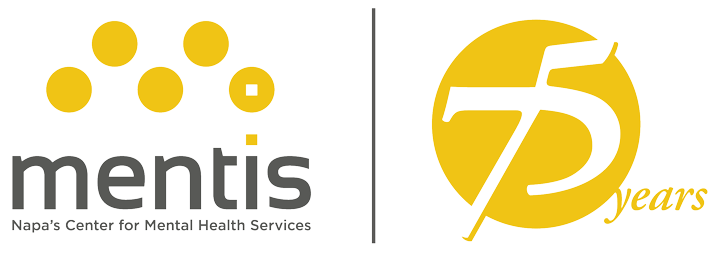This is an open letter to celebrate the truly wonderful adults who, in a year marked by isolation, joined my community of teenagers. At a time when many of my students rarely left their apartments, these people brought the world to my classroom.
But first, some context: it was a hard year. The connectedness that fuels learning required constant workarounds. My students, all English Learners, had little time to establish a sense of belonging before the pandemic stopped schools in the spring of 2019. A surprising number of them did not know where our town library was, or which local parks could provide respite when they needed to get outside. They were reluctant to practice their English with their other teachers or classmates; the mute button quickly normalized their silence. It was easy for my students to feel alone.
Additionally- and this is an understatement- teachers couldn’t do everything they’d do in a normal year. With this in mind, I held tight to certain practices as I planned my lessons. One of those practices, borrowed from the toolbox of rigorous project based learning, is incorporating an authentic audience. Students find relevance- and up their game- when they can solve a problem for, or present their work to, someone outside of the classroom. It also hit a release valve on those feelings of isolation. Involving adults from outside the classroom sent me in search of people who could offer my students feedback, weigh in on our learning, or see my kids’ final product. Some were closely related to class projects; others joined us as guest speakers. My students were limited by lockdowns and language barriers, but these adults made it clear to my students that there were other people rooting for them.
In a year where isolation could have defined us, these people brought the world to my classroom. They all have their own jobs, families, and were also grappling their way through a global health crisis. They come from an array of perspectives and expertise. Every single one of them was selfless in their decision to join us for a few strides on our journey.
I never got around to thank you cards; we couldn’t safely pass them around the classroom to sign. So I want the people I’m thanking to see the rest of the names on this list, and know that they are in supreme company. For other readers, I want you to give these folks a high five or buy their books or support their businesses. These people represent the best of giving simply because they could.
I am forever grateful to the following individuals:
Simran Jeet Singh, author and activist
I have Simran to thank for the first “Yes” of the year. The thrill of having him directly and compassionately answer questions from my students during a Zoom meeting (he joined us from New York) set the bar at a high place I tried to match thereafter. His book, Fauja Singh Keeps Going, uses rich illustrations and prose to tell the story of the world’s oldest marathon runner. Learning about Fauja Singh, who- like Simran- wears a dastar, sparked tons of questions for us. Simran met our inquiry with straightforwardness and poise, fielding as many questions about himself as about his title character. He modeled beautifully how to engage in conversation about race and culture in a way that upholds the dignity of all.
Yarely Chavez, MENTIS prevention specialist
If there was ever a year when we needed to explicitly talk about mental health, this was it. Yarely joined our class twice a month to help us, as a community, hold space to acknowledge what it felt like to be teenagers going to school in a pandemic. We set goals together, in English and Spanish, for getting through the year but also navigating life. Her warm, approachable style- and her consistent presence in our class- gave her immediate credibility with our students.
Dr. Austin Komarek, Blossom Chiropractic
I don’t even want to know the number of hours we spent hunched, bent, and curved toward our computers this school year. Dr. Austin kindly obliged me when I asked him to join our class to share his expertise. He showed us how to stretch and expand our bodies, so we could prevent the neck and back pain caused by crumpling our focus onto a small screen. Based on reflections the following day, our students were just as touched by Dr. Austin’s practical advice as they were by his exuberance in sharing helpful tips with our class. A fun language fact we learned from his visit: “chiro” means hands, not back.
Napa Valley Grape Growers
@nvgrapegrowers; napagrowers.org
The Fields of Opportunity program, supported by Napa Valley Grapegrowers and Napa Valley Farmworker Foundation, offers summer mentorships for high schoolers in Napa’s wine industry. Two of my students worked through the application and interview process in their second language, and their efforts were received with a sense of professionalism. My students took a bold risk to seek out this opportunity, and it gave me goosebumps to know NVG took them seriously. My co-teacher describes these internships as the kind that change the course of a young person’s life; now two very deserving girls are set to embark on a summer internship that I am certain will be as much a gift to them as they will be to those in their new workplace.
Jon Corippo, educator and author
When I asked Jon to visit my class, he said yes- and brought his students with him! My class practiced one of Jon’s eduprotocols for a month, to get better at writing paragraphs. Our grand finale was joining Jon and his students in an eduprotocol paragraph that we all wrote together. It was incredibly powerful for my students to see that other teenagers, at another school, were using the same routine that we used. It was even more powerful to crowdsource great words to use in our writing from both Mr. Corippo’s students (native English speakers) and my own. The whole experience- much like Jon himself- was easy, fun, and incredibly cool.
Kristine Mason, PlumpJack Group
When I used the three weeks between Thanksgiving and winter break to dig into feedback and explaining our thinking, I needed someone who could speak directly to the importance of these skills in the professional world. Kristine, a senior marketing manager, explained to us what kind of feedback she seeks out from her colleagues, and how she explains her thinking when she presents something to her team. Our Q&A was unrehearsed, and I could not have predicted how precisely her answers would apply to our project. Kristine’s input not only helped us refine how we explained our thinking and gave feedback, it also showed my students that we were learning a skill that applies in and out of the classroom. Better yet, her generosity was tangible; she was open to sharing her process with us, which made our conversation with her that much more meaningful.
Suzanne Truchard, candidate for Napa City Supervisor
Suzanne’s visit had the adults in our Zoom session in tears (the good kind). Her family put everything they had into helping her fulfill her dream of going to Harvard. This multilingual, multicultural mother and professional came ready to pay it forward to our students. As the daughter of Cuban immigrants, her story resonated deeply with our class. In addition to having a law degree, selling real estate, teaching yoga and Zumba, and occasionally hosting a pop-up Cuban restaurant, she’s knocking on doors to campaign for city supervisor. The overarching message to our students was a heartfelt, “I did it, and so can you.” At the end of her talk, many students asked the question we had all been wondering: “Yes, but when do you sleep?”
Itamar Abramovitch, Blossom Catering
Talking with someone who excels at their craft is always inspiring. But talking with someone who also immigrated to the U.S., owns their own business, and speaks Hebrew (a language most of my students had never heard), captivated our community of teenagers. When Itamar, an accomplished chef, explained, “My job is to make people happy with food,” he had my students’ rapt attention. A highlight of his visit was locating his home country, Israel, on a map, and seeing how close it was to a pair of our students’ home country, Morocco. Itamar also reminded us of an added benefit of being multilingual: you can read more cookbooks!
Napa Bookmine Literary Foundation
napabookmineliteraryfoundation.org
Napa bookmine gave my students the gift of real-life, hold-in-your-hand, books. When I learned that most of my class had very few books to read in their home language, I asked the Napa Bookmine Literary Foundation if they could help. My students made a wish list of what books they would like to read, in the language of their choice, and the foundation graciously matched what was available with what my students wanted. Being able to put books in my students’ hands- simply for the joy of reading- was a gift in itself. Bookmine owner Naomi Chamblin also kindly obliged when I asked her to give us a virtual tour of her Pearl Street shop.


